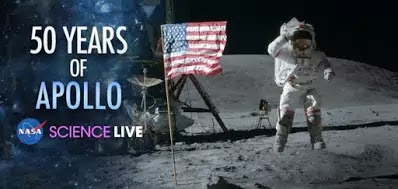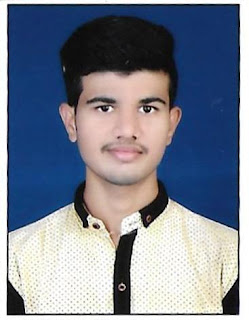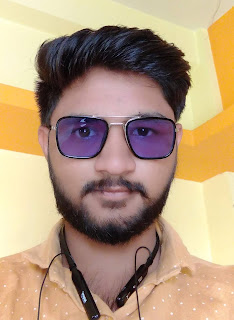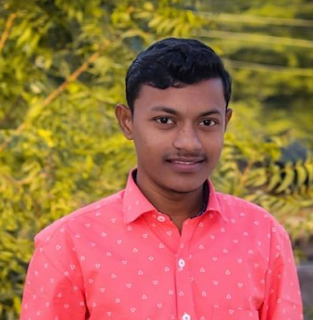 |
| 50 Years of Apollo |
50 Years of Apollo
Hello and welcome to NASA Science Live.
I'm your host, Yogesh Bhamare.
What was your most challenging thing while you were in space?
First it was adaptation to take several weeks for physically adapt very different at first. And a little bit nauseous at first.
Not awhat's going on gravity.
I call it adapt to the all of work and how everything works. Of course, the training on earth is very good. Very practical. And but there is a time where the two teams, the living team, teaching the incoming team.
That sparked up a challenge we had to learn mly and I we had do learn how to live apart and how to keep it alive so that would be great adventure for everybody.
And so that it was positive and you have to juggle all of the things that you have to be good astro newt and good husband and good father and good friend so that's the challenge of every one in life in the end.
To know more about indian interplanetary mission: Click Here
I like to know the next few days how are you going to spend them? And what are risks and what are the man nevers.
The next few days it is like the every day work the normal work, the maintenance, et cetera, put we are also packing. So we cannot leave any trace.
You can take pictures but to not leave any trace. Same thing on board I have to leave everything perfect for the next team coming in and that's -- after that we will bring back a few little things that are precious to us.
And also the theory preparation. Because you will of the procedures on the -- you have to note them, of course when I got certified I had them down but we have to review them to make sure we have to change the frame mind.
So that we can come back safely and this going to to take few hours we will fall back on earth. Back hue stone so that can be reunited with our families.
it is almost 509 anniversary of the lunar landing. What did this historic event have on you and how did it change the way astronauts see things?
it is extraordinary event. I wasn't board when apollo 11 landed but my mother was pregnant. I don't he in there was some kind ever transmission fluids but of course we all heard the story of what happened that day but in my as I was a child even images of earth from moon is it tel really gives me this quest for adventure.
And I was thinking I would like to be like them going to be healthy I will explorer.
And it got me.
And since I have been here it is in space when I see all of the planets the moon and the sun it is like ballet.
To know more about Sanskrit and Artificial Intelligence in Space Science: Click Here
And more -- it becomes more familiar.
And I think when we are in orbit and I think of this astronauts 50 years ago in orbit push itting towards the goal anding it it is going to happen again.
It going it is just around the corner.
When you are going to leave in a few days, who do you feel?
When you are going to lee the station is it going to be good-bye or a just a short good-bye or forever good-bye?
Sorry can you repeat once again.
You are going to leave had the station is it going short good-bye or a forever good-bye are you preparing for another mission?
Because we do not decide as representatives of our countries here operators to be part of a mission.
We are not the ones that decide that.
It is wiser to leave saying good-bye forever. 5d seven ture.
It is easy to close my eyes and come back virtually like in a dream. That's the only time we have for you. We say good-bye see you soon and welcome back to earth very soon.
"So, I was here today speaking to the excel academy, and it's n all-girls school here In washington, d.C. And it was really great to come talk to them about my mission on board the iss and the space program. And, more importantly how girls can get involved in stem.
When I was little, probably about their age, I remember shuttles launching over and over and I became fascinated with watching these shuttles launch.
My parents saw this, and they came up to me and said, 'hey are you interested in working for nasa someday?' I said, 'yeah I think I want to be an astronaut.'
So, the advice that I give young girls is pay attention to those who are living and
Working around you. If you see a field, especially in science, chemistry, physics, engineering, medicine there are so many fields in stem - that you think you might be interested in, go up and talk to that person. Go and bother them. Ask them about what they do.
Don't be shy. I think it's hard for young girls because we are very shy, and we don't want to go up and talk to people because we feel like we're bothering them.
But I tell girls this age to go ahead and bother.
Number one,certainly after flying on expedition 56 and 57 all the tremendous science we did on orbit - certainly a lot of science that actually helps humanity -
Everything from research on cancer, to parkinson's disease, and alzheimer's.
Man, I get to float everywhere in my line of work at least when I'm on board the space station and there is nothing cooler than that."
From the furthest reaches of our solar system to the storms of jupiter, nasa's new frontiers program was created totackle questions about our solar system deemed top priority from the planetary community.
New horizons began in 2006.
New horizon's first encounter with pluto and it's moons and uncovered that it's dwarf planet was for complicated.
Named 2014 mu 69, the kuiper belt holding keys to Understandings of our solar system.
Thm will use state of the art labs to help scientists under the building blocks of life as well as improve our understanding of astroids that could impact earth.
Today we announce our next mission to explore our solar system.
>> asa is pushing the boundaries of human knowledge and expanding the limits of technology.
Today I'm proud to announce that our next new frontiers mission "Dragonfly" will explore saturn's largest moon titan.
Titan is unlike any other place in our solar system, and the most comparable to early earth.
The instruments on board will help us investiga organic chemistry, look at Inhabitability and look at past and present life.
This revolutionary mission would have been unthinkable just a few short years. A nation does greatThings. We'll launch dragonfly to explore the frontiers of human knowledge for the benefit of all humanity.
To know more about SpaceX Starlink Internet Constellation: Click Here
The dragonfly has been selected to visit sturn's moon "Titan." Let's get some context about that.
We're so excited to is with "V" selected dragonfly to go forward the new frontiers mission.
It's the science that motivates us to do this exciting and difficult mission. A mission that has elements of instrumentation, and also has the ability of flying in that atmosphere of titan, a world that we have, of course, looked at with can icy any analysis with with the italian space agency.
What excites me about this mission is that titan has all the key ingredient for life, liquid water and liquid methane, molecules and the energy required for life.
We have on titan, an opportunity to observe the processes that were present on early earth when life began to form, and possibly even conditions that may harbor life today. We may be able to look for bio signatures there today.
What an exciting mission and of course that mission is led by dr. Elizabeth turtle at johns hopkins applied physics laboratory.
Also by a core team that brought together a very diverse group, close to 40% female.
But also an engineering team that brought just now, just a couple of years ago brought together the parker solar probe, a very hard challenging mission.
We brught that together below cost and on schedule.
We're very excited to see what will happen









No comments:
if you have any doubt, let me know